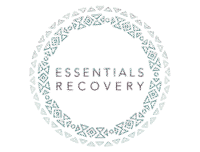Addiction recovery is not a one-size-fits-all process. Every individual enters treatment with a unique history, set of challenges, and personal goals. Because of these differences, a standardized treatment approach may fail to address the deeper needs that contribute to addiction. Personalized treatment plans offer a tailored pathway to recovery, providing individuals with strategies, therapies, and support systems that align with their specific situation.
A personalized approach considers the full picture—mental health conditions, family dynamics, physical health, social environment, cultural background, and personal preferences. When a treatment plan is designed with these factors in mind, it becomes far more effective, not only in helping someone get sober but also in supporting long-term wellness and resilience.
Understanding What a Personalized Treatment Plan Includes
A personalized treatment plan goes beyond simply choosing between inpatient or outpatient care. It is a detailed and evolving document that maps out the most effective combination of therapies and supports for each individual. This often includes elements like behavioral therapies, medical treatments, holistic practices, and relapse prevention strategies tailored to the individual’s unique experience.
Personalization might mean integrating trauma therapy for someone with a history of abuse or emphasizing medication-assisted treatment for another dealing with opioid dependence. For someone who thrives in creative expression, including art or music therapy might be a critical part of their journey. Others may need family therapy, vocational training, or help managing co-occurring disorders like depression or anxiety.
A personalized treatment plan identifies the right tools and support systems needed to foster recovery, while also offering flexibility to adapt over time as the individual grows and changes.
The Role of Comprehensive Assessment
The foundation of any personalized treatment plan is a comprehensive assessment. This typically includes a full evaluation of physical health, mental health, substance use history, and social factors. Clinicians use this assessment to understand how addiction has impacted the person’s life and what underlying issues might be contributing to it.
The assessment phase may also explore family history, previous treatment attempts, trauma, and environmental triggers. All of this information helps determine what kinds of therapies, medications, and support services will be most effective. Without this step, treatment may overlook critical elements, leaving the individual at greater risk for relapse.
This assessment isn’t a one-time task—it should be revisited periodically throughout treatment to ensure the plan evolves along with the individual’s progress.
Tailoring Treatment Modalities to the Individual
Once the initial assessment is complete, treatment providers can select the most appropriate therapeutic modalities. These can include cognitive behavioral therapy, dialectical behavior therapy, motivational interviewing, or trauma-focused therapy, among others.
For example, someone with intense emotional dysregulation may benefit from dialectical behavior therapy, which focuses on mindfulness and emotional control. Someone who struggles with negative thought patterns might find cognitive behavioral therapy more useful.
Other options include holistic approaches like meditation, yoga, or acupuncture, which can support physical and emotional healing. If an individual responds well to group dynamics, group therapy can become a central part of the plan. For others, one-on-one counseling might be more beneficial.
Flexibility is the key. As individuals engage with various treatments, their preferences and progress guide the direction of care.
Incorporating Medical and Psychiatric Care
Medical and psychiatric support is often necessary for effective recovery, particularly for individuals with co-occurring mental health disorders. A personalized treatment plan ensures that these conditions are properly diagnosed and treated alongside addiction.
For individuals who benefit from medication-assisted treatment, such as those recovering from opioid or alcohol addiction, a personalized plan includes the proper medications, dosage, and monitoring schedule. Medication is never a standalone solution, but when used as part of a comprehensive, customized approach, it can reduce cravings and help maintain long-term sobriety.
Psychiatric care may involve therapy and medication for conditions like depression, anxiety, bipolar disorder, or PTSD. Coordinating these services with addiction treatment provides integrated care, rather than fragmenting the healing process.
The Importance of Cultural and Personal Values
Cultural background, spiritual beliefs, and personal values are often overlooked in generic treatment plans but can significantly impact an individual’s recovery journey. A personalized treatment plan considers these elements, ensuring that care is respectful, relevant, and meaningful.
Some individuals may prefer treatment that aligns with their religious or spiritual beliefs. Others may benefit from gender-specific or LGBTQ+-inclusive services that create a safe and affirming environment. Understanding cultural norms around communication, family roles, and community support also allows providers to offer care that resonates more deeply with the individual.
When people feel seen and respected, they are more likely to engage fully in the recovery process.
Building a Support Network That Works
An effective personalized treatment plan doesn’t just focus on professional services—it also helps build a strong support network. This can include family members, peers in recovery, mentors, and community groups.
For some, engaging in family therapy can heal strained relationships and create healthier home environments. For others, peer support groups like 12-step meetings or alternative recovery communities provide critical encouragement and accountability.
The plan may also include case management services to help with housing, employment, legal issues, or transportation. These supports are especially important for individuals rebuilding their lives and managing the complex consequences of addiction.
Recovery doesn’t happen in isolation. A strong, customized support system empowers individuals to face challenges with confidence and connection.
Adapting Over Time: The Dynamic Nature of Treatment
Recovery is not a static process. Needs change, goals shift, and challenges evolve over time. A personalized treatment plan is designed to grow with the individual, adapting based on ongoing progress and feedback.
Treatment teams regularly assess the plan’s effectiveness and make adjustments as needed. This might include trying a new therapeutic approach, changing medication, increasing or decreasing the intensity of services, or introducing new goals.
This dynamic process prevents stagnation and allows the treatment plan to remain aligned with the individual’s development and lifestyle. It reinforces the idea that recovery is a journey, not a destination, and that ongoing care is a normal and essential part of long-term success.
Measuring Progress and Success Individually
Success in recovery looks different for everyone. A personalized treatment plan includes individualized benchmarks for progress, which may include abstinence, improved mental health, stable employment, repaired relationships, or increased self-esteem.
Rather than applying a rigid standard to every person, this approach honors the personal goals that matter most to the individual. Tracking progress in this way helps build motivation, celebrate achievements, and identify areas for continued growth.
It also creates a sense of ownership in the recovery process. When people are working toward goals they helped define, they are more likely to stay committed and feel empowered by their accomplishments.
Addressing Relapse with Compassion and Strategy
Relapse is a common part of the recovery journey and should be addressed with compassion, not judgment. A personalized treatment plan includes proactive relapse prevention strategies that reflect the individual’s specific triggers and high-risk situations.
This might involve developing coping mechanisms, identifying warning signs, and creating a detailed crisis plan. The treatment team can work closely with the individual to understand what led to the relapse and make necessary adjustments to the plan.
By treating relapse as a learning opportunity rather than a failure, personalized care reinforces resilience and promotes long-term recovery.
Empowering Individuals to Shape Their Recovery
Perhaps the most important aspect of a personalized treatment plan is that it empowers individuals to be active participants in their recovery. Rather than being told what to do, they are invited to share their insights, voice their needs, and help shape the direction of their care.
This collaborative approach builds trust, increases engagement, and reinforces personal responsibility. People are more likely to commit to a recovery plan when they feel it truly belongs to them.
Empowerment also helps individuals develop the skills and confidence needed to maintain recovery beyond the treatment setting. It shifts the narrative from being a passive recipient of care to being the author of one’s own recovery story.
Personalized Care for a Lifelong Journey
Addiction recovery is deeply personal, and effective treatment must reflect that reality. Personalized treatment plans recognize the individual behind the addiction and offer a path to healing that is grounded in empathy, respect, and evidence-based care.
By honoring each person’s unique journey, personalized plans provide the flexibility, support, and relevance necessary for lasting change. They transform treatment from a generic process into a meaningful experience—one that not only promotes sobriety but also fosters self-discovery, resilience, and a renewed sense of purpose.
Whether someone is taking their first step toward recovery or building on years of progress, a personalized treatment plan is one of the most powerful tools available. It creates space for healing that feels authentic, effective, and truly life-changing. Call us today at 855-509-1697.



